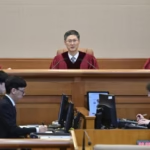By TV10 Gano mazima
Developing Story: The recent allegation of domestic violence by Prof. Badru Kateregga, a renowned academician and Kampala University faculty member, allegedly inflicted upon him by Jolly Shubaiha Kateregga, his now estranged wife, is a classic case of domestic violence played out in a sympathetic manner.

That he is still alive due to the overwhelming sympathy exhibited by the couple’s two children, Badria and Fakia Kateregga, who saved his life, seems too good to be true. History suggests that, in cases of domestic turmoil, children often side with their mother, regardless of the circumstances.
It would be foolhardy for 78-year-old Kateregga to put his life in danger with a woman he once loved but now loathes, especially when there are no other able-bodied family members present at their Buziga home, except for his nemesis’s children.

A man with numerous properties, including residences, and reportedly 28 children with their respective mothers, who is also a billionaire, would likely require extraordinary circumstances or support to coexist with a woman he has consistently accused of being an abusive partner.
Except for his potential attempt to fabricate a scenario of being attacked by a 35-year-old woman with the intention of harming him severely.

If a woman is fighting to claim her share of property, it might not make sense for her to risk everything by attempting to harm or kill the other party. Typically, individuals in similar situations might prioritize securing their interests or resolving disputes through legal means rather than resorting to violence.
Possible Considerations
Legal consequences: Attempting to harm or kill someone can lead to severe legal repercussions, including imprisonment.
Loss of inheritance: If the woman were to harm or kill the other party, she might risk losing her claim to the property or facing legal challenges to her inheritance.
Alternative dispute resolution: There may be alternative methods for resolving disputes, such as mediation or negotiation, that could help the parties reach a mutually beneficial agreement.
If Jolly truly intended to take action, the professor’s situation would have been resolved by now. Her initial pursuit of legal redress suggests that she trusts the system and prefers a peaceful resolution over violence
There can be various reasons why someone might falsely accuse their partner of domestic violence. Some possible motivations include:
1. Retaliation or revenge
2. Gaining an advantage in a divorce or custody dispute
3. Manipulation or control
4. Seeking attention or sympathy
5. Misunderstandings or miscommunications
False accusations can indeed be a form of domestic violence, serving as a means for abusers to further manipulate, control, and maintain power over their partners.
However, in this particular incident, it appears that the accuser is employing a scripted media tactic to garner public sympathy, albeit in an amateurish and poorly executed manner.



